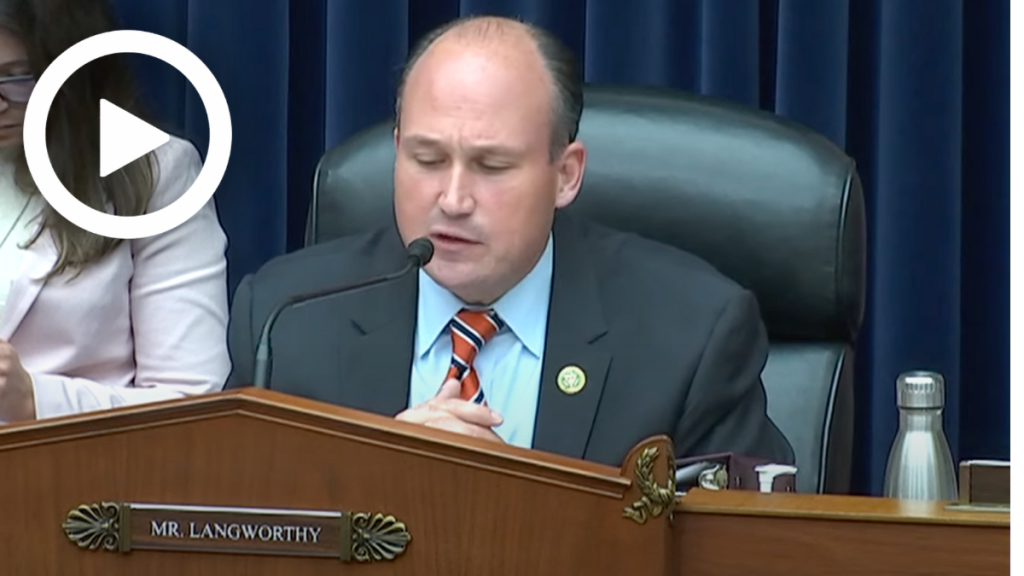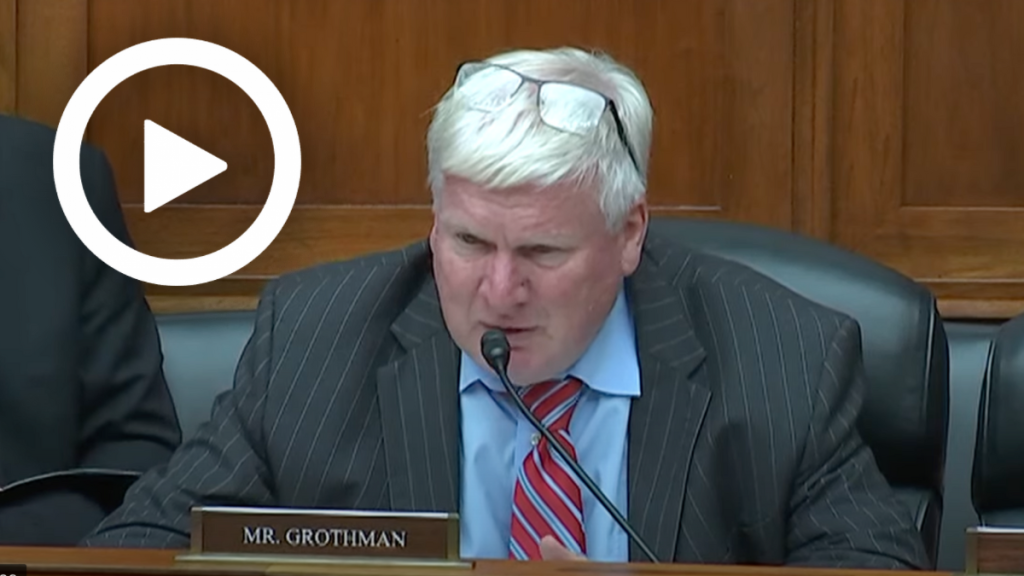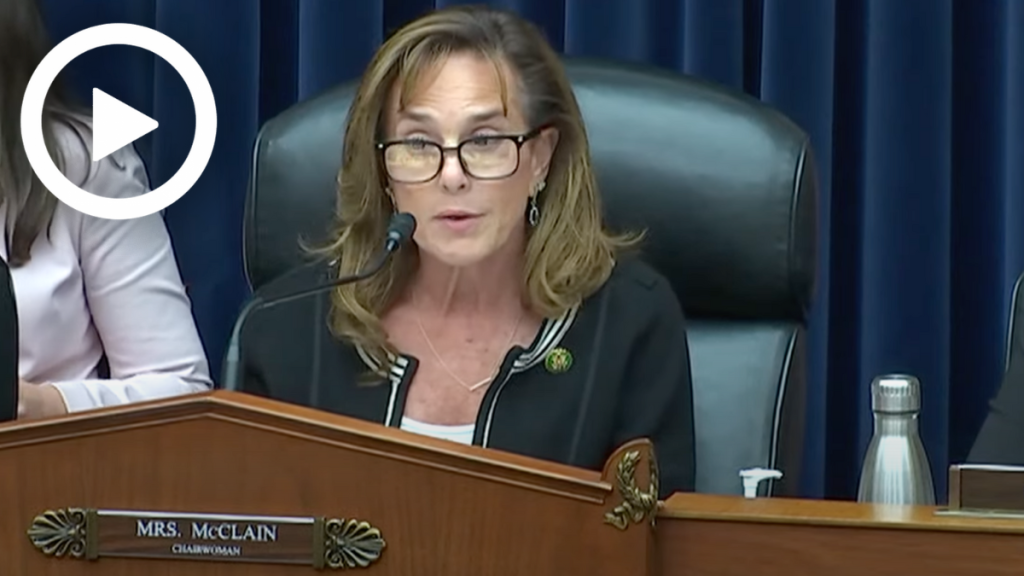Hearing Wrap Up: Inflation Reduction Act Adds to the Deficit and Makes Inflation Worse
WASHINGTON—The Subcommittee on Health Care and Financial Services held a hearing today titled “The Inflation Reduction Act: A Year in Review” to discuss how one year removed from Democrats’ so-called Inflation Reduction Act (IRA), it’s clear Americans are not benefiting from IRA policies. When the American people needed economic relief most, the IRA did everything but relieve inflation.
Key Takeaways:
Even President Biden now admits the IRA had nothing to do with inflation.
- Instead of lowering prices, the Inflation Reduction Act (IRA) hiked taxes on businesses, mandates price controls on drugs, devoted $80 billion to hire 87,000 new Internal Revenue Service (IRS) agents to target middle class Americans, and earmarked $300 billion to advance Democrats’ radical climate agenda.
The IRA’s drug pricing scheme means higher prices, fewer cures, and less access to care for American patients.
- Joel White, President of the Council for Affordable Health Coverage, discussed how the IRA will result in fewer cures during his opening testimony. “All of the experts – CBO, the CMS Actuary, and private academics – agree that the IRA will result in fewer therapies. They simply disagree on the extent of the damage.”
President Biden is willing to sacrifice our economic security to pursue his radical Green New Deal.
- President Biden and Democrats have used the IRA to disguise radical Green New Deal policies that put China over the U.S.
- New estimates project the actual cost of the IRA green energy will be double the projected amount.
- Preston Brashers, PhD, and Senior Policy Analyst of Tax Policy at the Heritage Foundation said during his opening testimony, “The IRA is much more fiscally irresponsible than it appeared on paper. It uses gimmicky and questionable pay-fors and expirations, and some of the provisions are proving much more costly than forecasters expected – especially the bevy of tax credits for green energy, electric vehicles, carbon sequestration, and other things ostensibly connected to the climate agenda.”
Member Highlights:
Rep. Nick Langworthy (R-N.Y.) discussed how there is no evidence spending in the IRA will significantly decrease carbon emissions, global temperatures, or inflation.
Rep. Langworthy: “Do you believe Green energy subsidies are effective at reducing inflation?”
Mr. Brashers: “Green energy subsidies will benefit people that want to buy electric vehicles, which is predominantly very wealthy people. […] The overall effect of the Inflation Reduction Act’s green tax credits is going to dramatically increase deficits. That is the primary cause of the inflation we have been experiencing.”
Rep. Glenn Grothman (R-Wis.) pointed out how the IRA benefits the wealthy while leaving most American taxpayers to struggle with higher prices.
Rep. Grothman: “The IRA has been described as a massive transfer of tax dollars from the working class to the wealthy, big banks, and large corporations. Do you agree with this characterization and why do you think that’s true?”
Mr. Brashers: “I think many of the beneficiaries for the green tax credits are going to be the very wealthy. […] For example, the EV tax credits have proven to be much more expensive than they’re going to be. The way the IRS is implementing it has expanded that so that wealthy people who are leasing can claim these credits, even though that was not really in the intent of the original bill.”
Chairman Lisa McClain (R-Mich.) warned that with persistent inflation and a drug pricing scheme that will result in fewer cures, Americans are worse off as a result of the IRA.
Rep. McClain: “Does the Inflation Reduction Act in fact reduce inflation?”
Mr. Brashers: “No.”
Rep. McClain: “Do you have any data to support that?”
Mr. Brashers: “The Inflation Reduction Act was intended to reduce inflation by reducing the deficit, but the deficit has doubled from last year from about one trillion to two trillion.”
Rep. McClain: “What impact does the IRA have on prices Americans are paying at the gas pump and at the supermarkets?”
Mr. Brashers: “What we have seen so far since the Inflation Reduction Act went into place – and most of the provisions went into place on January 1 of this year – the average price of gasoline was $3.09 at the time and now its $3.84. The evidence is that the prices of gasoline are going up”
Rep. McClain: “Mr. White, will the IRA increase the cost of prescription medicines?”
Mr. White: “Absolutely. The first thing is for the inflation rebates, CBO has said repeatedly that those will lead to higher launch prices. Yes, it will increase drug prices.”
Rep. McClain: “Were Americans better off in 2019, or are they better off now under Bidenomics?”
Mr. Brashers: “I would say they were better off in 2019. Based off of real incomes, based off of inflation – the economic statistics have deteriorated significantly.”
CLICK HERE to watch the full hearing.
READ MORE: McClain: Americans are Worse Off One Year After the Inflation Reduction Act


